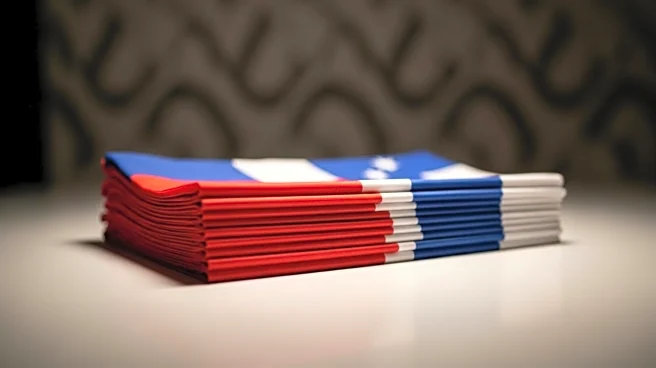What is the story about?
What's Happening?
The UK Government spent £50,000 on replacing US flags to avoid angering President Trump during his state visit. The initial flags were scrapped because they featured the wrong shade of red, according to Nick Farley, the UK's official flag supplier. Replacement 'cherry red' flags were commissioned at the last minute, each costing £800. The change in color was reportedly due to the US President's preference, although it has not been confirmed by the US. The blunder attracted criticism from social media commentators, highlighting perceived government incompetence.
Why It's Important?
The expenditure on flag replacements during President Trump's state visit reflects the diplomatic sensitivities involved in international relations. Such actions underscore the importance of attention to detail in state protocol and the lengths to which governments may go to ensure favorable diplomatic outcomes. The incident also highlights the potential for public scrutiny and criticism over government spending, especially when perceived as excessive or unnecessary. This could influence public opinion on government priorities and fiscal responsibility.
What's Next?
The UK Government may face continued scrutiny over its spending decisions, particularly in relation to diplomatic events. There may be calls for greater transparency and accountability in government expenditures. Additionally, the incident could prompt discussions on the importance of cultural sensitivity and protocol in international diplomacy, potentially influencing future state visits and diplomatic engagements.
Beyond the Headlines
The flag replacement incident may have implications for the UK's image on the international stage, affecting perceptions of its diplomatic competence. It also raises questions about the influence of personal preferences in diplomatic protocol and the balance between tradition and adaptation in state ceremonies. The event may lead to broader discussions on the role of symbolism in international relations and the impact of public opinion on diplomatic practices.

















